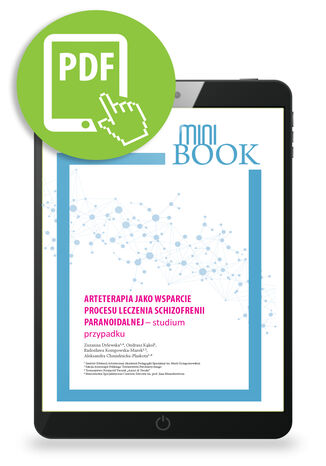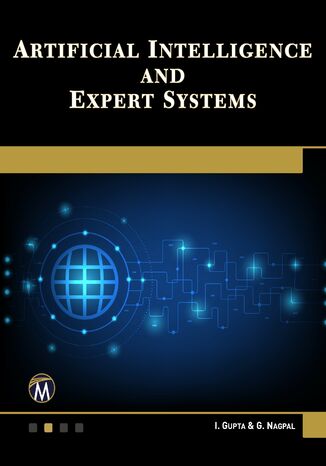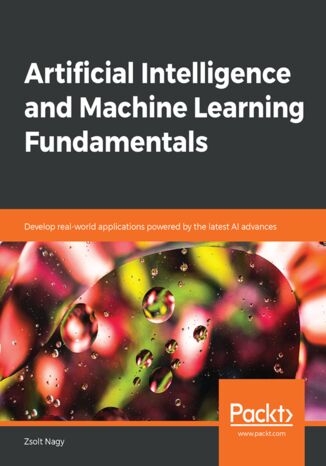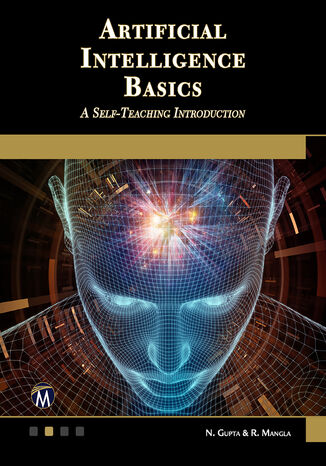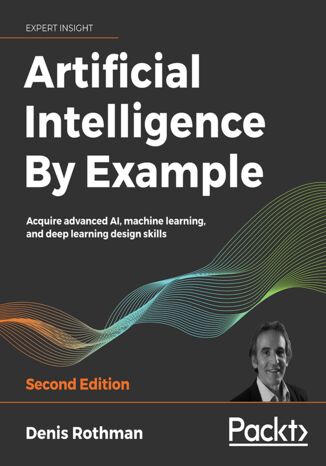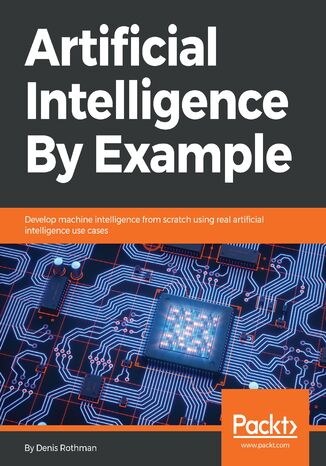Категорії
-
- Біткойн
- Ділова жінка
- Коучинг
- Контроль
- Електронний бізнес
- Економіка
- Фінанси
- Фондова біржа та інвестиції
- Особисті компетенції
- Комп'ютер в офісі
- Комунікація та переговори
- Малий бізнес
- Маркетинг
- Мотивація
- Мультимедійне навчання
- Нерухомість
- Переконання та НЛП
- Податки
- Соціальна політика
- Порадники
- Презентації
- Лідерство
- Зв'язки з громадськістю
- Звіти, аналізи
- Секрет
- Соціальні засоби комунікації
- Продаж
- Стартап
- Ваша кар'єра
- Управління
- Управління проектами
- Людські ресурси (HR)
-
- Architektura i wnętrza
- Безпека життєдіяльності
- Biznes i Ekonomia
- Будинок та сад
- Електронний бізнес
- Ekonomia i finanse
- Езотерика
- Фінанси
- Особисті фінанси
- Бізнес
- Фотографія
- Інформатика
- Відділ кадрів та оплата праці
- Для жінок
- Комп'ютери, Excel
- Бухгалтерія
- Культура та література
- Наукові та академічні
- Охорона навколишнього середовища
- Впливові
- Освіта
- Податки
- Подорожі
- Психологія
- Релігія
- Сільське господарство
- Ринок книг і преси
- Транспорт та спедиція
- Здоров'я та краса
-
- Офісні застосунки
- Бази даних
- Біоінформатика
- Бізнес ІТ
- CAD/CAM
- Digital Lifestyle
- DTP
- Електроніка
- Цифрова фотографія
- Комп'ютерна графіка
- Ігри
- Хакування
- Hardware
- IT w ekonomii
- Наукові пакети
- Шкільні підручники
- Основи комп'ютера
- Програмування
- Мобільне програмування
- Інтернет-сервери
- Комп'ютерні мережі
- Стартап
- Операційні системи
- Штучний інтелект
- Технологія для дітей
- Вебмайстерність
-
- Антології
- Балада
- Біографії та автобіографії
- Для дорослих
- Драми
- Журнали, щоденники, листи
- Епос, епопея
- Нарис
- Наукова фантастика та фантастика
- Фельєтони
- Художня література
- Гумор, сатира
- Інше
- Класичний
- Кримінальний роман
- Нехудожня література
- Художня література
- Mity i legendy
- Лауреати Нобелівської премії
- Новели
- Побутовий роман
- Okultyzm i magia
- Оповідання
- Спогади
- Подорожі
- Оповідна поезія
- Поезія
- Політика
- Науково-популярна
- Роман
- Історичний роман
- Проза
- Пригодницька
- Журналістика
- Роман-репортаж
- Romans i literatura obyczajowa
- Сенсація
- Трилер, жах
- Інтерв'ю та спогади
-
- Археологія
- Bibliotekoznawstwo
- Кінознавство / Теорія кіно
- Філологія
- Польська філологія
- Філософія
- Finanse i bankowość
- Географія
- Економіка
- Торгівля. Світова економіка
- Історія та археологія
- Історія мистецтва і архітектури
- Культурологія
- Мовознавство
- літературні студії
- Логістика
- Математика
- Ліки
- Гуманітарні науки
- Педагогіка
- Навчальні засоби
- Науково-популярна
- Інше
- Психологія
- Соціологія
- Театральні студії
- Богослов’я
- Економічні теорії та науки
- Transport i spedycja
- Фізичне виховання
- Zarządzanie i marketing
-
- Безпека життєдіяльності
- Історія
- Дорожній кодекс. Водійські права
- Юридичні науки
- Охорона здоров'я
- Загальне, компендіум
- Академічні підручники
- Інше
- Закон про будівництво і житло
- Цивільне право
- Фінансове право
- Господарське право
- Господарське та комерційне право
- Кримінальний закон
- Кримінальне право. Кримінальні злочини. Кримінологія
- Міжнародне право
- Міжнародне та іноземне право
- Закон про охорону здоров'я
- Закон про освіту
- Податкове право
- Трудове право та законодавство про соціальне забезпечення
- Громадське, конституційне та адміністративне право
- Кодекс про шлюб і сім'ю
- Аграрне право
- Соціальне право, трудове право
- Законодавство Євросоюзу
- Промисловість
- Сільське господарство та захист навколишнього середовища
- Словники та енциклопедії
- Державні закупівлі
- Управління
-
- Африка
- Альбоми
- Південна Америка
- Центральна та Північна Америка
- Австралія, Нова Зеландія, Океанія
- Австрія
- Азії
- Балкани
- Близький Схід
- Болгарія
- Китай
- Хорватія
- Чеська Республіка
- Данія
- Єгипет
- Естонія
- Європа
- Франція
- Гори
- Греція
- Іспанія
- Нідерланди
- Ісландія
- Литва
- Латвія
- Mapy, Plany miast, Atlasy
- Мініпутівники
- Німеччина
- Норвегія
- Активні подорожі
- Польща
- Португалія
- Інше
- Przewodniki po hotelach i restauracjach
- Росія
- Румунія
- Словаччина
- Словенія
- Швейцарія
- Швеція
- Світ
- Туреччина
- Україна
- Угорщина
- Велика Британія
- Італія
-
- Філософія життя
- Kompetencje psychospołeczne
- Міжособистісне спілкування
- Mindfulness
- Загальне
- Переконання та НЛП
- Академічна психологія
- Психологія душі та розуму
- Психологія праці
- Relacje i związki
- Батьківство та дитяча психологія
- Вирішення проблем
- Інтелектуальний розвиток
- Секрет
- Сексуальність
- Спокушання
- Зовнішній вигляд та імідж
- Філософія життя
-
- Біткойн
- Ділова жінка
- Коучинг
- Контроль
- Електронний бізнес
- Економіка
- Фінанси
- Фондова біржа та інвестиції
- Особисті компетенції
- Комунікація та переговори
- Малий бізнес
- Маркетинг
- Мотивація
- Нерухомість
- Переконання та НЛП
- Податки
- Соціальна політика
- Порадники
- Презентації
- Лідерство
- Зв'язки з громадськістю
- Секрет
- Соціальні засоби комунікації
- Продаж
- Стартап
- Ваша кар'єра
- Управління
- Управління проектами
- Людські ресурси (HR)
-
- Антології
- Балада
- Біографії та автобіографії
- Для дорослих
- Драми
- Журнали, щоденники, листи
- Епос, епопея
- Нарис
- Наукова фантастика та фантастика
- Фельєтони
- Художня література
- Гумор, сатира
- Інше
- Класичний
- Кримінальний роман
- Нехудожня література
- Художня література
- Mity i legendy
- Лауреати Нобелівської премії
- Новели
- Побутовий роман
- Okultyzm i magia
- Оповідання
- Спогади
- Подорожі
- Поезія
- Політика
- Науково-популярна
- Роман
- Історичний роман
- Проза
- Пригодницька
- Журналістика
- Роман-репортаж
- Romans i literatura obyczajowa
- Сенсація
- Трилер, жах
- Інтерв'ю та спогади
-
- Філософія життя
- Міжособистісне спілкування
- Mindfulness
- Загальне
- Переконання та НЛП
- Академічна психологія
- Психологія душі та розуму
- Психологія праці
- Relacje i związki
- Батьківство та дитяча психологія
- Вирішення проблем
- Інтелектуальний розвиток
- Секрет
- Сексуальність
- Спокушання
- Зовнішній вигляд та імідж
- Філософія життя
Światło na sztukę! Igor Gałązkiewicz napisał książkę poświęconą sztuce. To ją stawia na pierwszym miejscu i daje jej różne zadania: technologii, strategii, a nawet opakowania. Celebryty, marki, kleju dla społeczności. Raz to sztuka pozostająca w dobrej kondycji, innym razem taka, która ledwo zipie. Zawsze jednak jest ona wyrazicielką ludzkich potrzeb. A ludzie, w przeciwieństwie do rekwizytów, scenografii i atrybutów czasów, w jakich żyją, pozostają niezmienni. I dlatego, nawet jeśli wyrażają jakieś teoretycznie nowe potrzeby, w rzeczywistości kryją się pod tym stare potrzeby ― pierwotne, podstawowe. Wyszedłszy od takich założeń, autor przygląda się współczesnej sztuce, a także jej przełożeniu na branding i marketing. Potrzeba artyfikacji produkcji masowej, presja bycia kreatywnym i wyrażania się poprzez rzeczy o oryginalnych, zaskakujących formach skutkują tym, że otrzymujemy wyjątkowe produkty, usługi i angażujące marki. Art branding, bazujący na mądrej, twórczej i efektywnej relacji sztuki i biznesu, stał się bardzo ciekawą formą komunikacji. I na tyle powszechną, by warto było zagłębić się w ten świat.
Książka w przystępny sposób prezentuje rozpowszechniony w latach 1919−1939 styl art déco. Autorka – historyk sztuki – opisała, jak artdekowski styl objawiał się w malarstwie, grafice, architekturze oraz życiu codziennym. Opisy wzbogacono o liczne fotografie i reprodukcje.
Art déco. Historia. Sztuka. Ludzie
Nowy język plastyczny, jakim było art déco, powstał na skutek zmęczenia ograniczeniami i restrykcjami okresu wojennego. Artyści odczuwali potrzebę tworzenia opartego na dekoracyjności oraz bogactwie wzorów i materiałów. Ich twórczość łączyła pewne cechy tradycji z innowacjami inżynieryjnymi ery maszyn. Prezentowany album to bogato ilustrowana opowieść o świecie lat dwudziestych, trzydziestych i czterdziestych XX wieku. Obecny wówczas styl art déco rozwinął się przede wszystkim w obrębie sztuk wizualnych: w architekturze, rzeźbie, malarstwie, grafice użytkowej i rzemiośle artystycznym.
Art in a Disrupted World: Poland, 1939-1949
W książce Art in a Disrupted World historyczka sztuki Agata Pietrasik przedstawia studium praktyk artystycznych z czasu drugiej wojny światowej. Omawia dzieła urodzonych w Polsce artystów, które powstały w obozach koncentracyjnych, gettach, na uchodźstwie oraz w latach tużpowojennych. Zwraca uwagę na etyczną stronę praktyki artystycznej jako metody walki o zachowanie człowieczeństwa w najbardziej nieludzkich warunkach. Autorka przekracza utrwalone ramy historyczne oraz tradycyjne formy narracji. W trzech przystępnych esejach zestawia rysunki, obrazy, projekty architektoniczne i wystawiennicze, a także prace literackie i teatralne, by na nowo opowiedzieć o życiu w Polsce w czasie okupacji. Pietrasik proponuje nowe spojrzenie na sztukę w dekadzie następującej po wybuchu drugiej wojny światowej. Omawia mniej znane projekty uznanych twórców, takich jak Marian Bogusz czy Józef Szajna, i przybliża działalność tych, którzy jak Jadwiga Simon-Pietkiewicz nie zyskali jeszcze należnego im miejsca w historii sztuki. Przyglądając się sztuce i artystom tego okresu dąży do uchwycenia ich autonomicznych języków artystycznych. Pyta o zdolność historii sztuki do pomieszczenia w jej dyskursie dzieł powstałych w odpowiedzi na traumatyczne doświadczenia. Publikacja w języku angielskim.
ART. Mitologia - Przygody słowiańskich bogów
Prastare dęby znają wiele historii. Może nawet pamiętają, jak po ziemi biegali słowiańscy bogowie: Perun, dobry władca panujący na niebie i Weles, mściwy i groźny bóg podziemia. Poznaj niezwykły świat wierzeń naszych przodków! Daj ponieść się magicznym opowieściom z czasów, w których słowiańskie bóstwa rządziły ziemią i to one ustalały porządek rzeczy. Losy słowiańskich bóstw i zwykłych śmiertelników często nawzajem się przenikały, zwłaszcza gdy ludzie próbowali wykraść bogom ich tajemną wiedzę o świecie. Historie o stworzeniu świata i stare podania, tłumaczące różne zjawiska przyrody czasem was rozbawią, czasem wzruszą, a czasem wywołają gęsią skórkę. Wszystkie pozwolą poznać dzieciom wierzenia Słowian, w tym historie najważniejszych bóstw czy ideę axis mundi. Podróż po magicznym świecie pełnym tajemnic uprzyjemnią piękne ilustracje autorstwa Ewy-Poklewskiej-Koziełło. Tekst "Przygód słowiańskim bogów" napisała Melania Kapelusz. Książka zachwyci czytelników w każdym wieku!
Niezwykła kobieta, genialna malarka. Fascynująca biografia jednej z pierwszych wielkich malarek w historii. Artemisia to barwna, zbeletryzowana biografia jednej z pierwszych wielkich malarek w historii. Kobiety, która pokonała wszelkie społeczne bariery, zdobyła niezależność i sławę. Artemisia Gentileschi była pierwszą artystką przyjętą w poczet prestiżowej florenckiej Accademia del Disegno, córką znanego malarza z kręgu caravaggionistów, Orazia Gentileschiego. Przyjaciółka i protegowana ówczesnych osobistości, otrzymywała zamówienia od najznamienitszych rodów Rzymu, Florencji, Neapolu, a nawet od koronowanych głów. Jej wybitny talent można podziwiać, oglądając m.in. Zuzannę i starców, Judytę obcinającą głowę Holofernesowi, Autoportret czy Alegorię malarstwa, zdobiące najważniejsze muzea świata. Artemisia osadzona w sugestywnie odmalowanych realiach siedemnastowiecznej Italii, Paryża, Londynu to również z wielkim znawstwem i pasją opisana historia skomplikowanych uczuć łączących ojca i córkę, oscylujących od miłości do nienawiści, od żalu i rozgoryczenia po pełne tkliwości zrozumienie i przebaczenie. Historia kobiety, która za pomocą swej sztuki na miarę Caravaggia dokonała zemsty na swoim gwałcicielu i która podróżowała po całej Europie jako niezależna i profesjonalna artystka.
Arteterapia jako wsparcie procesu leczenia schizofrenii paranoidalnej - studium przypadku
Zuzanna Dylewska, Ondrasz Kąkol, Radosława Kompowska-Marek, Aleksandra Chmielnicka-Plasota
Szacuje się, że na schizofrenię zapada 0,55–1,6% populacji ogólnej w społeczeństwach cywilizowanych [1]. Rozpoznanie schizofrenii niesie ze sobą konsekwencje personalne, medyczne, prawne i społeczne, a sama choroba jest postrzegana jako poważna, przewlekła i trudna do leczenia. Emocje i uczucia chorego stają się mgliste lub mniej jasne i mogą być opisywane jako „spłycone”. Może też wystąpić spadek inicjatywy czy energii. Schizofrenia od dawna opisywana jest jako choroba niejednorodna, o zmiennym obrazie klinicznym, zróżnicowanym przebiegu, stosunkowo często wymykająca się jednoznacznej ocenie [5]. Wciąż poszukuje się dodatkowych, pozafarmakologicznych metod wsparcia i aktywizacji chorych na schizofrenię. Jedną z nich jest arteterapia, czyli sposób oddziaływania terapeutycznego za pomocą kreacji artystycznej.
Arteterapia. Od rozważań nad teorią do zastosowań praktycznych
Barbara Kaczorowska, Wiesław Karolak
Prace i dorobek zespołu współpracującego z prof. Karolakiem są dobrze znane w Polsce i poza granicami kraju. Kolejne konferencje i spotkania oraz inicjatywy wspierające ruch związany z arteterapią pozwalają mieć nadzieję, że uzyskiwać ona będzie coraz większe znaczenie w Polsce. Świadczy o tym oryginalność formułowanych projektów badawczych oraz intensywność i zaangażowanie, z jaką są one realizowane. (z recenzji prof. W. Limont)
Arteterapia w twórczym rozwoju. Ćwiczenia, warsztaty, projekty dla dzieci i młodzieży
Wiesław Karolak, Barbara Karolak
Publikacja składa się z trzech rozdziałów. Rozdział pierwszy to rozważania związane z istotą najprostszej jednostki dydaktycznej i treningowej, jaką są ćwiczenia. W dalszej części tego rozdziału prezentowane są scenariusze i opisy realizacji piętnastu przykładowych ćwiczeń. Drugi rozdział zawiera rozważania związane z istotą większej jednostki dydaktycznej, terapeutycznej, artystycznej, jaką są warsztaty. W dalszej części tego rozdziału prezentowane są scenariusze zajęć warsztatowych z dokumentacją fotograficzną i opisami. Trzeci rozdział zawiera rozważania związane z istotą najbardziej rozbudowanej, a zarazem dość skomplikowanej jednostki dydaktycznej, terapeutycznej, artystycznej, jaką są projekty. W tym rozdziale – podobnie jak w dwóch poprzednich – prezentowane są scenariusze, opisy wybranych projektów wraz z dokumentacją fotograficzną i opisami. Książka może stanowić cenną pomoc dla nauczycieli, metodyków, arteterapeutów, jak również studentów wielu specjalności pedagogicznych, edukacji artystycznej i arteterapii. Z tej publikacji, jak z przewodnika, mogą korzystać wszyscy, którzy, prowadząc różne grupy zajęć, poszukują atrakcyjnych metod pracy, dających uczestnikom radość tworzenia i zwiększających efektywność działań twórczych.
Arthur Greiser. Biografia i proces namiestnika III Rzeszy w Kraju Warty
Arthur Greiser - modelowy funkcjonariusz narodowosocjalistycznej partii, kierownik polityczny (gauleiter) tzw. Kraju Warty i namiestnik państwa (Reichsstatthalter) w części okupowanej Polski włączonej do Rzeszy. Jego kariera rozpoczęła się od wstąpienia do NSDAP - jak sam powiedział - dla "chleba i pracy". Przeszedł wszystkie szczeble awansu aż do kręgu zaufanych Hitlera, wykazując własną inicjatywę w realizacji zbrodniczego planu likwidacji wszystkiego, co świadczyło o polskości ziemi, którą miał zniemczyć. Autorzy książki szczegółowo omawiają etapy rozpoczętej w Gdańsku karier oraz kształtowanie się osobowości nazistowskiego władcy odpowiedzialnego za ludobójstwo dokonane na Polakach i Żydach. Przedstawiają dowody zbrodni oraz złożone zagadnienia historyczne i prawne. Proces Greisera był pierwszym, jaki został przeprowadzony przed Najwyższym Trybunałem Narodowym w 1946 roku. Prekursorko określono w nim zasady odpowiedzialności karnej ludobójcy, który własnoręcznie nikogo nie uśmiercił. Przed Trybunałem oskarżony nie przyznał się do winy i twierdził, że nie wiedział o zarzucanych mu zbrodniach, za dokonanie których - wywodził - odpowiedzialni byli tylko Hitler i Himmler. W uczciwym procesie ważną rolę odegrał prokurator - doktor Mieczysław Siewierski, profesor Uniwersytetu Łódzkiego. * Dieter Schenk urodził się14 marca 1937 roku We Frankfurcie nad Menem. Kryminolog, prawnik, publicysta, pisarz . Autor wielu książek na temat narodowego socjalizmu oraz dziewięciu utworów scenicznych. W Niemczech i w Polsce stał się znany jako kontynuator wątków badawczych i naukowych dotyczących zasad odpowiedzialności karnej za zbrodnie popełnione przez nazistów w Polsce w czasie li wojny światowej. Od 1989 roku jest autorem wykładów na temat historii narodowego socjalizmu na Uniwersytecie Łódzkim, a w roku 2017otrzymał na tym uniwersytecie tytuł doktora honoris causa. Za książkę o obronie Poczty Polskiej miasto Gdańsk nadało mu tytuł honorowego obywatela. Jako członek Amnesty International współtworzył grupę współpracy "Policja i tortury". Jest autorem niemieckiego i polskiego wydania biografii gdańskiego gauleitera Alberta Forstera oraz generalnego gubernatora Hansa Franka. Polska odznaczyła Dietera Schenka Krzyżem Oficerskim Orderu Zasługi Rzeczypospolitej Polskiej, a Niemcy - Orderem Zasługi Republiki Federalnej Niemiec na Wstędze. Oprócz tego otrzymał w Polsce, m.in. za książkę o mordzie na lwowskich profesorach, tytuł Kustosza Pamięci Narodowej. Prof. dr hab. Witold Kulesza - od 1973 roku zatrudniony w Katedrze Prawa Karnego na Wydziale Prawa i Administracji Uniwersytetu Łódzkiego. Jego zainteresowania badawcze koncentrują się na prawnokarnej ochronie czci i godności jednostki, wolności wypowiedzi oraz zbrodni systemów totalitarnych i odpowiedzialności karnej ich sprawców, ze szczególnym uwzględnieniem odpowiedzialności sędziów i prokuratorów za zbrodnie sądowe. Od początku pracy zawodowej współpracownik Okręgowej Komisji Badania Zbrodni przeciwko Narodowi Polskiemu w Łodzi, od 1994 roku jej przewodniczący. W latach 1998-2006 dyrektor Głównej Komisji Badania - a następnie - Ścigania Zbrodni przeciwko Narodowi Polskiemu w Warszawie, wiceprezes IPN. Współautor projektu ustawy o Instytucie Pamięci Narodowej - Komisji Ścigania Zbrodni przeciwko Narodowi Polskiemu z dnia 18 grudnia 1998 roku, którą wprowadził do polskiego prawa karnego pojęcie i karalność "kłamstwa oświęcimskiego". Członek-kurator Międzynarodowego Kuratorium Badania Powojennego Wymiaru Sprawiedliwości w Wiedniu. Stypendysta Fundacji im. Alexandra von Humboldta.
Articulate Studio Cookbook. Go from Studio newbie to Studio guru
Robert Kennedy, Robert Kennedy III
More and more companies find they need to build their training courses internally. They are turning to tools like Articulate Studio because it is easy to use and doesn't have a steep learning curve. If you are familiar with Microsoft PowerPoint in any way, you should feel right at home with Articulate Studio.Articulate Studio Cookbook will get you ready to add Articulate Studio to your enterprise toolkit. This book gives you detailed yet simple steps to complete your training course. By following the clear steps in each chapter, you will gain an understanding of the software but also be able to complete specific tasks and common activities.The good thing about this book is that you can start anywhere and get the information that you need for a specific activity. Cross-references are provided if there is a skill located elsewhere that you need to complete a task.It can be frustrating to pick up a new piece of software and not know where to begin. With Articulate Studio, there is a whole suite of software to work with. You need to know how to work with Presenter, Engage, Quizmaker and Encoder to make great Articulate courses. Then, you'll need to know how to put them all together in a way that makes a professional looking, cohesive and smooth-flowing course. We'll make it easy to follow step by step until you have a professional course.Articulate Studio Cookbook will help you go from Studio newbie to Studio guru. Dive in and choose your recipe.
Artificial Intelligence and Expert Systems. Techniques and Applications for Problem Solving
Mercury Learning and Information, I. Gupta, G. Nagpal
This book covers current AI applications and techniques for solving problems and accomplishing tasks. It introduces branches of AI such as formal logic, reasoning, knowledge engineering, expert systems, neural networks, and fuzzy logic. It emphasizes expert systems, with sections on state space search, knowledge engineering, neural networks, fuzzy logic, and Prolog.It begins with an introduction to AI and its applications, setting the stage for foundational concepts. Readers are guided through state space search and heuristic search strategies, crucial for problem-solving in AI. The focus shifts to expert systems, covering their development life cycle, knowledge acquisition, and representation, providing a deep dive into emulating human decision-making.Later chapters cover neural networks and the learning process, essential for creating adaptive systems. Sections on fuzzy logic and fuzzy systems introduce methods for handling uncertainty in AI. Final chapters on programming in logic and advanced Prolog offer practical techniques for AI solutions. This approach equips readers with the skills to apply AI in various domains, enhancing their problem-solving abilities and understanding of intelligent systems.
Machine learning and neural networks are pillars on which you can build intelligent applications. Artificial Intelligence and Machine Learning Fundamentals begins by introducing you to Python and discussing AI search algorithms. You will cover in-depth mathematical topics, such as regression and classification, illustrated by Python examples.As you make your way through the book, you will progress to advanced AI techniques and concepts, and work on real-life datasets to form decision trees and clusters. You will be introduced to neural networks, a powerful tool based on Moore's law.By the end of this book, you will be confident when it comes to building your own AI applications with your newly acquired skills!
Artificial Intelligence Basics. A Self-Teaching Introduction
Mercury Learning and Information, N. Gupta, R. Mangla
This book is designed as a self-teaching introduction to the fundamental concepts of artificial intelligence (AI). It begins with the history of AI, the Turing test, and early applications, providing a strong foundation. Later chapters cover the basics of searching, game playing, and knowledge representation. The journey continues with detailed explorations of expert systems and machine learning, equipping readers with essential AI techniques.As the course progresses, you will delve into separate programming chapters on Prolog and Python, learning how to implement AI concepts in these languages. These chapters offer practical coding experience, enhancing your understanding of AI programming. The book culminates with a comprehensive chapter on AI machines and robotics, showcasing numerous modern applications and providing a glimpse into the future of AI technology.Understanding these AI concepts is crucial as they form the basis of many modern technologies and applications. This book ensures a smooth transition from a beginner to a proficient AI practitioner, equipped with both theoretical knowledge and practical skills. By the end of the book, you will have a thorough understanding of AI's history, core principles, and practical implementations, ready to apply this knowledge to real-world problems and projects.
AI has the potential to replicate humans in every field. Artificial Intelligence By Example, Second Edition serves as a starting point for you to understand how AI is built, with the help of intriguing and exciting examples.This book will make you an adaptive thinker and help you apply concepts to real-world scenarios. Using some of the most interesting AI examples, right from computer programs such as a simple chess engine to cognitive chatbots, you will learn how to tackle the machine you are competing with. You will study some of the most advanced machine learning models, understand how to apply AI to blockchain and Internet of Things (IoT), and develop emotional quotient in chatbots using neural networks such as recurrent neural networks (RNNs) and convolutional neural networks (CNNs).This edition also has new examples for hybrid neural networks, combining reinforcement learning (RL) and deep learning (DL), chained algorithms, combining unsupervised learning with decision trees, random forests, combining DL and genetic algorithms, conversational user interfaces (CUI) for chatbots, neuromorphic computing, and quantum computing.By the end of this book, you will understand the fundamentals of AI and have worked through a number of examples that will help you develop your AI solutions.
Artificial intelligence has the potential to replicate humans in every field. Artificial Intelligence By Example serves as a starting point for you to understand how AI is built, with the help of intriguing examples and case studies.Artificial Intelligence By Example will make you an adaptive thinker and help you apply concepts to real-life scenarios. Using some of the most interesting AI examples, right from a simple chess engine to a cognitive chatbot, you will learn how to tackle the machine you are competing with. You will study some of the most advanced machine learning models, understand how to apply AI to blockchain and IoT, and develop emotional quotient in chatbots using neural networks.You will move on to designing AI solutions in a simple manner rather than get confused by complex architectures and techniques. This comprehensive guide will be a starter kit for you to develop AI applications on your own.By the end of this book, you will have understood the fundamentals of AI and worked through a number of case studies that will help you develop your business vision.







